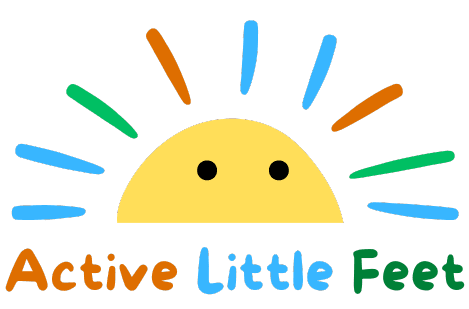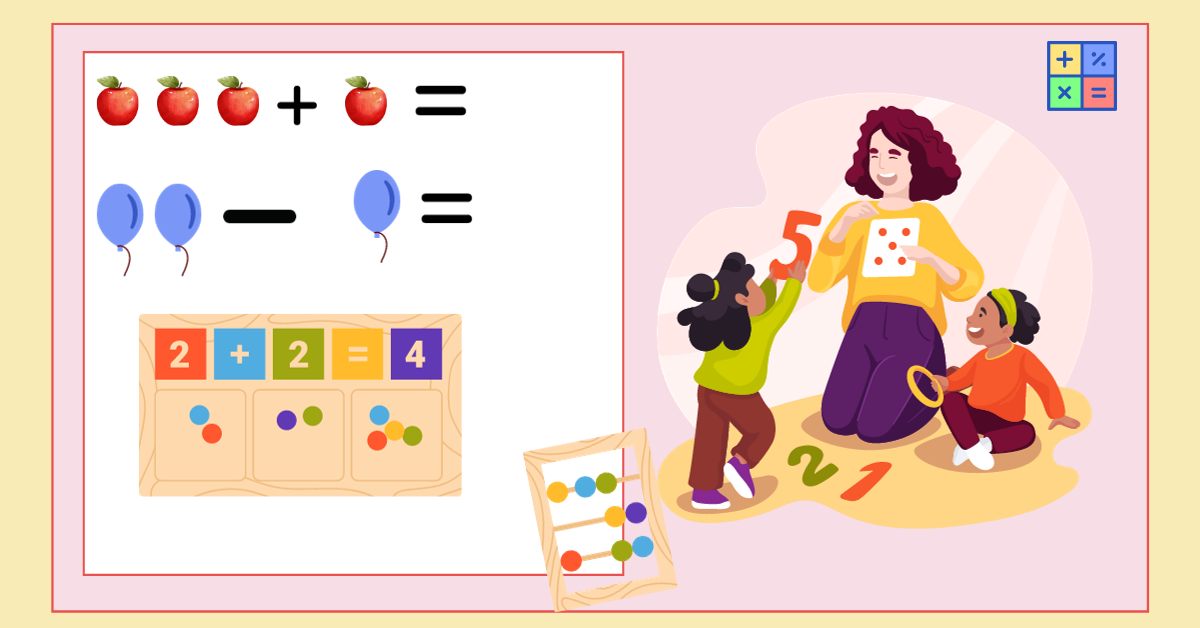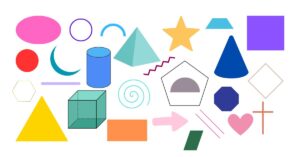Do you want to improve Math skills and reading for kindergarten? As we explained in this post, poor math foundation from the kindergarten level is the number one reason why kids struggle with math later on. Without a proper grasp and understanding of math basics, it’s impossible to understand more complicated concepts in grade school.
The question is, how do you improve math skills and reading for kindergarten kids to ensure they have sufficient building blocks?
Parents Must Take Charge
Our biggest mistake is assuming that education is the teacher’s responsibility. We teach our kids manners, hygiene, and praying, leaving math and English to the school. After all, we are not trained teachers, right?
Well, not exactly.
We define numeracy as the ability to use math concepts in all areas of life. This means it has to be taught and applied everywhere, not just in school.
But think about it this way – teachers have 20 or more babies to teach and care for in class simultaneously. They cannot possibly teach your child all the math concepts they need to learn at the kindergarten level. There is just not enough time to understand each child’s learning style in class and cover all bases.
This leaves the parent to do part the job. It’s either that or your baby will fall through the cracks and assume the consequences of struggling with math later on.
The good news is, kindergarten math and language is simple enough that you don’t have to be a trained teacher to teach. Better yet, you are best positioned to understand how your child learns best and take it as slow as possible until they understand everything.

Right Mindset Is the Secret to Improve Math Skills and Reading for Kindergarten
In our previous post, we discussed math anxiety and where it stems from. But kindergarten kids still don’t think math is hard unless someone tells them. They are, therefore, not afraid of the subject, and their mind is open to learn and love it.
So again, we go back to parents because most of our beliefs come from home. Your job as a parent is to plant the right mindset and attitude about math into your child. It’s your job to show them math is fun, simple and essential in daily life.
All negative talk about math being hard should go out the door.
I’ll also repeat that you must know how your child learns best. At this age, they learn best through play and experiences, more than sitting down with a pen and a book.
We will explore more about some of the tactics you can use to improve math skills and reading for kindergarten at home and school. However, this will require great intentionality and willingness to do something we have traditionally left to teachers.
Math and literacy must be a daily endeavor, not something we save for homework time.
Tr. Bernard, Fountain Junior School
What Are 5 Ways to Support the Development of Math Skills in Preschoolers?
1. Understand Important Kindergarten Math Concepts
You need to know everything a child must learn in pre-school to ensure you cover all basis. That’s the starting point.
In summary, here’s what they cover and touch in kindergarten;
- Numbers and Counting
- Sorting and Classifying
- Shapes and Graphs
- Measuring and Comparing
- Time and Money
- Adding and Subtracting
- Preceding Numbers
You can get the textbook they use in school or spend time on their math book often to see where they are in class. Alternatively, you can follow our CBC Kindergarten resources for preschoolers and preprimary. With this knowledge, you can support the teacher with extra teaching techniques.
2. Practice Daily
The mind is a muscle; one must work it out daily. This applies especially in math if you want it to become a normal part of their cognitive development. It really just takes ten minutes in the evening to go through a concept and practice it together.
I start by asking my daughter what they learned in math today with their math book open because kids are forgetful. I pretend I don’t know, and they teach me the concept while I listen excitedly. As they explain, you will see if they fully understand, and it will sink in even further.
If they got the concept, we finish off by doing a practice exercise or two. If they struggle with it, I take some time to help them understand as best as I can. This doesn’t always take one day, so don’t force it. Sometimes I’ll even need to rethink the teaching method and get more creative about it, as we will discuss down below. Once those 10-15 minutes are over, we pack up and do other things.
3. Make Math Fun
Even I agree math and languages can be boring. There are no fun experiments or activities, and all you do is sit and write. This is not the impression I want my kids to have about math.
That’s why most of our teaching is away from the table and books. Again, kids learn best through play and experiences, so we try to do more of that.
When they were little, we went on walks and used that time to count everything from cars to trees on the way. We also counted everything from the fruit pieces on their plate to the cloth items I put on the washer. I started them on educational cartoons and music very early, so they learned numbers while learning to talk.
Now, at this age, we use toys and food to do addition, subtraction and shapes. We also cook and bake together while I explain concepts such as weight and length. Our lives have become an opportunity for me to teach concepts and vocabulary such as less/more, longer/shorter, heavier/lighter and so on. Find out some fun opposites activities you can play with your kids, plus free printable flashcards.
4. Make Use of Technology
Gen Z spends a scary amount of time in front of screens. But unlike our time, technology today has as much educational content as entertainment. On TV alone, we have Da Vinci Kids, which my kids love, Edu Channel, Mindset and PBS kids. These channels offer education in a simple, entertaining way that’s easy for kids to grasp.
The internet also has many programs designed to teach kids math and literacy. Platforms like Kahoot, make learning so much fun. But the best part about using technology to learn is playing games together. My youngest loves chess, while the oldest can spend hours on Sudoku. I take time every weekend to play these games with them because it’s better this way.
5. Identify Problem Areas
My last recommendation is to learn your child’s problem area. If you spend enough time with your kids going through concepts and doing homework together, you will understand what they struggle with. Once you do, find a way to simplify that concept for them in a way teachers had not thought of.
Sometimes, though, the problem may be a neuro-divergent disability like Dyscalculia, dyslexia, ADHD or sensory issues. With any of these problems, a child will struggle with more than just one part of the subject – you will notice the struggle in almost everything they do.
The good news is, these are all manageable conditions in childhood. An expert will teach the child coping skills and working around the disability to become an effective person.
How Can I Develop Numeracy Skills in Kindergarten Kids?
Again, numeracy entails seeing and using math in all areas of life. The only way to help kids with numeracy skills is to make math part of everyday life. Math cannot be a subject you do twice a week- it has to become a lifestyle and part of the vocabulary.
Here are a few suggestions, and some we have already discussed;
- Play math games with toys, hopscotch, hide and seek and technology
- Cook and bake together using math concepts
- Sing and read stories with numbers
- Spend time outside counting, comparing, and sorting
- Talk about time and what happens at different times of the day
Relationship Between Math Skills and Reading for Kindergarten
We have talked a lot about improving math skills in kindergarten, and you may be wondering, what about reading and literacy?
The two go hand in hand. You cannot teach math without teaching literacy because one must understand instructions and vocabulary first. And like math, language and literacy skills develop naturally as you read and speak to your child, watch shows and even sing songs.
So again, it’s an intentional journey you must take with your child and expose them to as many words as possible. Thankfully language is easier to grasp and maintain mentally, so you won’t have to be so intentional about it. However, we still do take a few minutes a day to read a story, sing a song, or review a grammar lesson for that day.
Daily practice is the ultimate way to improve math skills at any level. You may want to think outside the box and practice math in play form or experiences instead of book and pen. Kindergarten kids will understand concepts better during play with toys or walks than in class.
Instilling the belief that math is a fun and easy subject in young kids is crucial to their success in upper grades. We make math look fun by using toys and food at home to learn basic arithmetic. We also take every opportunity, from taking walks outside to cooking and even gardening, to teach things like counting, sorting, shapes, colors, etc.
Dyscalculia, an inability to understand number concepts, is a significant reason your child may not get math. If they are doing well in other subjects and only struggling with numbers, have an expert check them out and start therapy as soon as possible.




